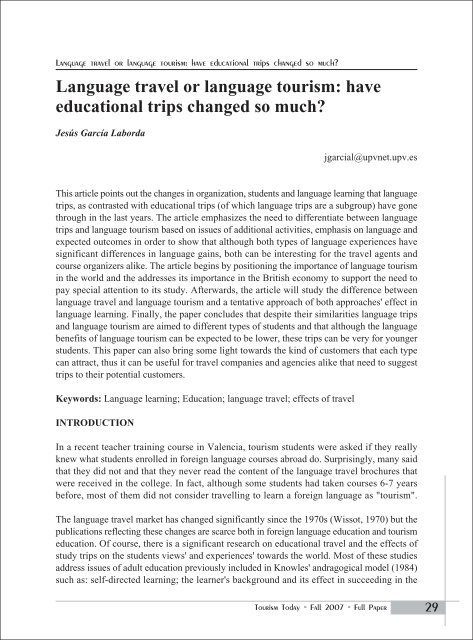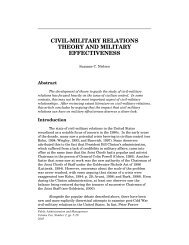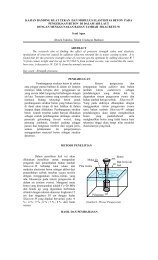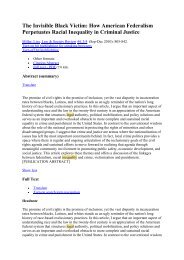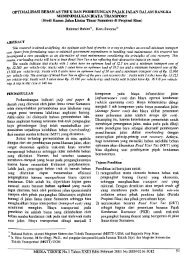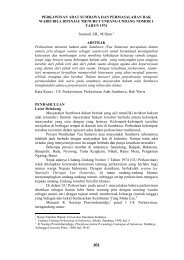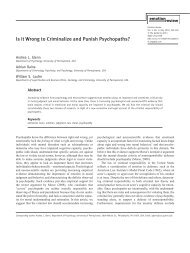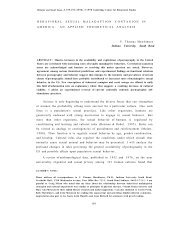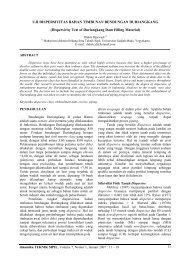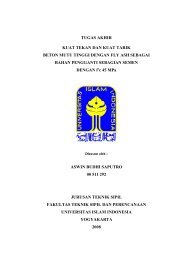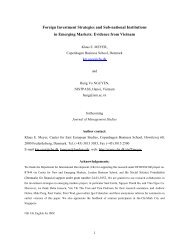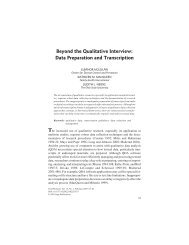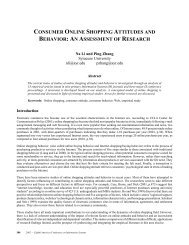Ski – resort and regional development: profile of visitors ... - E-Journal
Ski – resort and regional development: profile of visitors ... - E-Journal
Ski – resort and regional development: profile of visitors ... - E-Journal
Create successful ePaper yourself
Turn your PDF publications into a flip-book with our unique Google optimized e-Paper software.
Language travel or language tourism: have educational trips changed so much?<br />
Language travel or language tourism: have<br />
educational trips changed so much?<br />
Jesús García Laborda<br />
jgarcial@upvnet.upv.es<br />
This article points out the changes in organization, students <strong>and</strong> language learning that language<br />
trips, as contrasted with educational trips (<strong>of</strong> which language trips are a subgroup) have gone<br />
through in the last years. The article emphasizes the need to differentiate between language<br />
trips <strong>and</strong> language tourism based on issues <strong>of</strong> additional activities, emphasis on language <strong>and</strong><br />
expected outcomes in order to show that although both types <strong>of</strong> language experiences have<br />
significant differences in language gains, both can be interesting for the travel agents <strong>and</strong><br />
course organizers alike. The article begins by positioning the importance <strong>of</strong> language tourism<br />
in the world <strong>and</strong> the addresses its importance in the British economy to support the need to<br />
pay special attention to its study. Afterwards, the article will study the difference between<br />
language travel <strong>and</strong> language tourism <strong>and</strong> a tentative approach <strong>of</strong> both approaches' effect in<br />
language learning. Finally, the paper concludes that despite their similarities language trips<br />
<strong>and</strong> language tourism are aimed to different types <strong>of</strong> students <strong>and</strong> that although the language<br />
benefits <strong>of</strong> language tourism can be expected to be lower, these trips can be very for younger<br />
students. This paper can also bring some light towards the kind <strong>of</strong> customers that each type<br />
can attract, thus it can be useful for travel companies <strong>and</strong> agencies alike that need to suggest<br />
trips to their potential customers.<br />
Keywords: Language learning; Education; language travel; effects <strong>of</strong> travel<br />
INTRODUCTION<br />
In a recent teacher training course in Valencia, tourism students were asked if they really<br />
knew what students enrolled in foreign language courses abroad do. Surprisingly, many said<br />
that they did not <strong>and</strong> that they never read the content <strong>of</strong> the language travel brochures that<br />
were received in the college. In fact, although some students had taken courses 6-7 years<br />
before, most <strong>of</strong> them did not consider travelling to learn a foreign language as "tourism".<br />
The language travel market has changed significantly since the 1970s (Wissot, 1970) but the<br />
publications reflecting these changes are scarce both in foreign language education <strong>and</strong> tourism<br />
education. Of course, there is a significant research on educational travel <strong>and</strong> the effects <strong>of</strong><br />
study trips on the students views' <strong>and</strong> experiences' towards the world. Most <strong>of</strong> these studies<br />
address issues <strong>of</strong> adult education previously included in Knowles' <strong>and</strong>ragogical model (1984)<br />
such as: self-directed learning; the learner's background <strong>and</strong> its effect in succeeding in the<br />
Tourism Today - Fall 2007 - Full Paper<br />
29


